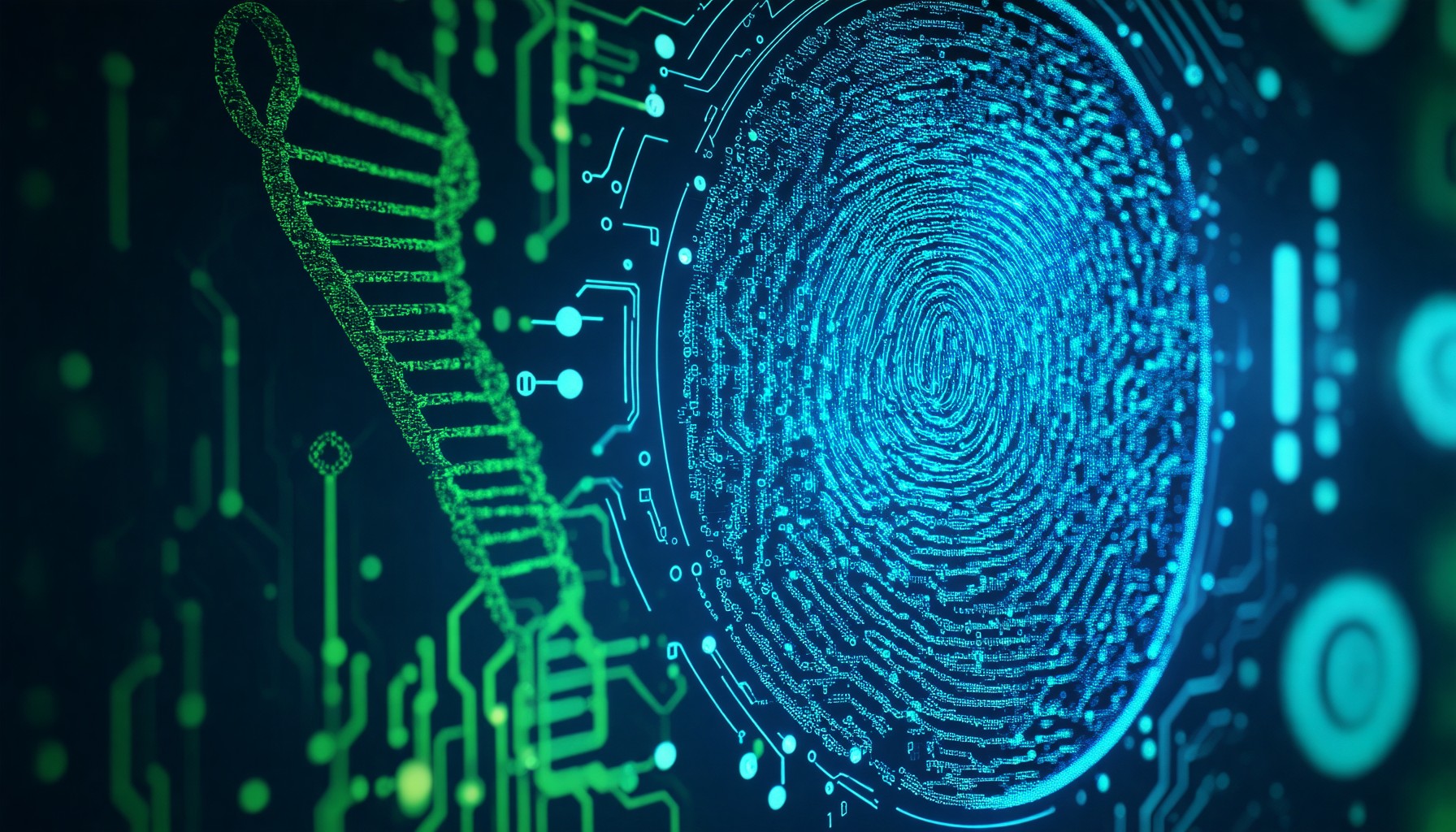Key Takeaways
- Biometric Products Revolutionize Security: Biometrics, including fingerprint and facial recognition, enhance identity protection by using unique biological traits.
- Robust Biometric Databases: Biometric databases ensure quick and secure identification, significantly reducing unauthorized access risks.
- High Accuracy Rates: Biometric authentication methods boast accuracy rates up to 99%, making them a reliable security choice.
- Growing Market Potential: The biometric market is projected to grow over 15% annually, driven by rising security concerns and technological advancements.
- Addressing Privacy Risks: While offering security benefits, biometrics also raise privacy and data security concerns that must be managed responsibly.
In an era where security is paramount, biometric products are revolutionizing the way we protect our identities and assets. But what exactly are biometrics? This article will delve into the definition and meaning of biometrics, exploring the various types of biometric products, including fingerprint recognition, facial recognition, and iris scanning. We will also examine how biometric data enhances security solutions through robust databases and current biometric statistics that highlight their effectiveness. As we navigate the biometric market and its growth potential, we will address the risks associated with biometrics, including privacy concerns and data security issues. Finally, we will compare biometric solutions to traditional security methods and look ahead to the future of biometric technology. Join us as we uncover the transformative impact of biometrics on security solutions and beyond.
What are biometrics?
Biometrics refers to the measurement and statistical analysis of people’s unique physical and behavioral characteristics. The biometrics definition encompasses a wide range of technologies that utilize these traits for identification and access control. Essentially, what is biometrics? It is a method of recognizing individuals based on their biological data, which can include fingerprints, facial recognition, iris patterns, and even voice recognition. This technology has gained significant traction in various sectors, including security, healthcare, and finance, due to its ability to enhance security measures and streamline processes.
Biometrics definition and meaning
The biometrics meaning extends beyond mere identification; it signifies a shift towards more secure and efficient systems. By leveraging unique biological traits, organizations can minimize the risks associated with traditional password-based systems. For instance, a biometric database stores these unique identifiers, allowing for quick and accurate verification of individuals. This technology not only improves security but also enhances user convenience, as individuals no longer need to remember complex passwords or carry physical identification.
Overview of biometric technology and its applications
Biometric technology has a wide array of applications across different industries. In security, it is used for access control in buildings, devices, and secure areas. Financial institutions utilize biometrics to authenticate transactions, reducing fraud risks. Additionally, healthcare providers employ biometric solutions to ensure patient identity verification, safeguarding sensitive medical information. The versatility of biometric products makes them essential in modern security frameworks, with ongoing advancements continually expanding their capabilities. For more insights into how biometrics can enhance your health and wellness, check out our Essential insights into biometics vitamins.
What are the different types of biometric products?
Biometric products are revolutionizing the way we secure our identities and access sensitive information. Understanding the various types of biometric products is essential for anyone looking to enhance their security measures. Here, we delve into some of the most prominent biometrics examples and the hardware that supports these innovative solutions.
Biometrics examples: Fingerprint, facial recognition, and iris scanning
Among the most widely recognized biometric products are fingerprint scanners, facial recognition systems, and iris scanners. Each of these technologies utilizes unique biological traits to verify identity:
- Fingerprint Scanners: These devices capture the unique patterns of ridges and valleys on a person’s fingertip. They are commonly used in smartphones and security systems, providing a quick and reliable method of authentication.
- Facial Recognition: This technology analyzes facial features and compares them to a database of known faces. It is increasingly used in surveillance systems and personal devices, offering a hands-free approach to security.
- Iris Scanning: Iris recognition involves capturing the unique patterns in the colored part of the eye. This method is known for its high accuracy and is often employed in high-security environments.
Biometric hardware: Devices and systems used in biometric solutions
The effectiveness of biometric solutions relies heavily on the underlying hardware. Various devices and systems are designed to capture and process biometric data:
- Biometric Readers: These devices are essential for capturing biometric data, whether it be fingerprints, facial images, or iris patterns. They are often integrated into security systems for access control.
- Biometric Databases: Once biometric data is captured, it is stored in a biometric database for future comparisons. This database is crucial for ensuring that the authentication process is both secure and efficient.
- Biometric Software: This software analyzes the captured biometric data and matches it against stored data. It plays a vital role in determining whether access should be granted or denied.
For those interested in exploring the potential of biometric products, consider choosing the right biometric distributor to ensure you have access to the latest technology and support.
How Does Biometric Data Enhance Security Solutions?
Biometric data plays a crucial role in enhancing security solutions by providing a unique and reliable method of identification. Unlike traditional passwords or PINs, biometric data is inherently tied to the individual, making it significantly harder to replicate or steal. This section delves into the workings of a biometric database and the importance of biometric statistics in modern security measures.
Biometric Database: How It Works and Its Importance in Security
A biometric database is a specialized system that stores biometric data, such as fingerprints, facial recognition patterns, and iris scans. This data is collected through various biometric products and is then converted into digital templates that can be securely stored and accessed. The importance of a biometric database lies in its ability to provide quick and accurate identification, which is essential for security applications in various sectors, including banking, healthcare, and law enforcement.
When a user attempts to access a secure system, their biometric data is captured and compared against the stored templates in the biometric database. This process, known as biometric matching, ensures that only authorized individuals gain access, thereby significantly reducing the risk of unauthorized entry. The effectiveness of biometric databases is further enhanced by advanced encryption techniques that protect sensitive data from breaches.
Biometric Statistics: Current Trends and Effectiveness in Security Measures
Biometric statistics reveal significant trends in the adoption and effectiveness of biometric solutions across industries. According to recent research on biometrics, the global biometric market is projected to grow exponentially, driven by increasing security concerns and technological advancements. For instance, the use of biometrics in mobile devices has surged, with over 80% of smartphones now equipped with fingerprint or facial recognition technology.
Moreover, biometric statistics indicate that organizations implementing biometric solutions experience a notable decrease in security breaches. Studies show that biometric authentication methods are up to 99% accurate, making them one of the most reliable forms of security available today. As the biometric industry continues to evolve, the integration of artificial intelligence and machine learning is expected to further enhance the accuracy and efficiency of biometric systems.
For those interested in exploring the benefits of biometric solutions, consider choosing the right biometric distributor to ensure you receive the best products tailored to your needs.
What is the biometric market and its growth potential?
The biometric market is rapidly evolving, driven by advancements in technology and increasing demand for security solutions. As we explore the biometrics market size and industry growth statistics, it becomes evident that biometrics products are becoming integral to various sectors, including healthcare, finance, and personal security. The global biometric technology market is projected to reach significant milestones, reflecting a robust growth trajectory fueled by innovations in biometric data collection and processing.
Biometrics market size and industry growth statistics
The biometrics market has witnessed exponential growth over the past few years. According to recent biometric statistics, the market is expected to expand at a compound annual growth rate (CAGR) of over 15% through the next decade. This growth is largely attributed to the increasing adoption of biometric solutions for identity verification and access control. Industries are increasingly investing in biometrics hardware, such as fingerprint scanners and facial recognition systems, to enhance security measures.
Moreover, the rise in biometric database utilization has significantly improved the efficiency of security protocols, making biometrics a preferred choice for organizations looking to safeguard sensitive information. The integration of biometrics into mobile devices and applications further amplifies its market potential, as consumers seek convenient and secure authentication methods.
Biometric technology market: Key players and innovations
The biometric technology market is characterized by a diverse range of key players, including established biometric companies and innovative startups. Major players are continuously investing in research on biometrics to develop cutting-edge solutions that address emerging security challenges. Innovations in biometric products, such as advanced facial recognition algorithms and multi-modal biometric systems, are setting new standards for accuracy and reliability.
Additionally, partnerships between biometric companies and technology firms are fostering the development of integrated solutions that enhance user experience. As the demand for seamless and secure biometric solutions grows, we can expect to see further advancements in biometrics equipment, making it an exciting time for the biometric industry.
For those interested in exploring the benefits of biometrics, consider creating an account to access exclusive offers and learn more about how these innovative solutions can enhance your security measures. Visit our [Account Creation & Sign-Up](https://bio90077.youngevity.com/us_en/join/process/) page to get started!
What are the risks associated with biometrics?
As we delve deeper into the world of biometric products, it’s essential to address the biometrics risks that accompany their use. While these technologies offer enhanced security and convenience, they also raise significant concerns regarding privacy and data security. Understanding these risks is crucial for both consumers and businesses that rely on biometrics solutions.
Biometrics risks: Privacy concerns and data security issues
The implementation of biometric technology often involves the collection and storage of sensitive personal data, such as fingerprints, facial recognition data, and iris scans. This raises several privacy concerns:
- Data Breaches: Biometric data, once compromised, cannot be changed like a password. If a biometric database is hacked, the implications can be severe, leading to identity theft and unauthorized access to personal information.
- Surveillance: The use of biometrics can lead to increased surveillance and tracking of individuals, raising ethical questions about consent and the extent of monitoring in public spaces.
- Misuse of Data: There is a risk that biometric data could be misused by governments or corporations for purposes beyond security, such as profiling or discrimination.
To mitigate these risks, it is vital for biometric companies to implement robust security measures and adhere to strict data protection regulations.
Research on biometrics: Studies highlighting potential vulnerabilities
Numerous studies have been conducted to explore the vulnerabilities associated with biometric products. Research indicates that while biometrics can enhance security, they are not infallible:
- False Positives and Negatives: Biometric statistics show that no system is 100% accurate. False positives can lead to unauthorized access, while false negatives can deny legitimate users.
- Technological Limitations: Environmental factors, such as lighting for facial recognition or skin conditions for fingerprint scanning, can affect the reliability of biometric hardware.
- Ethical Implications: Studies have raised concerns about the ethical implications of using biometrics in various sectors, including law enforcement and employment, where biases may arise.
As we continue to explore the biometric market, it is crucial to remain aware of these biometrics risks and advocate for responsible use and regulation of biometric technology.
For those interested in exploring more about how to navigate the world of choosing the right biometric distributor or understanding the essential insights into biometics vitamins, feel free to check out our resources.
How do biometric products compare to traditional security methods?
Biometric products are revolutionizing security solutions by offering advanced methods that surpass traditional security measures. Unlike conventional systems that rely on passwords or physical keys, biometric solutions utilize unique biological traits, such as fingerprints, facial recognition, and iris scans, to authenticate users. This shift not only enhances security but also streamlines access control across various sectors, including finance, healthcare, and personal devices.
Biometric solutions vs. traditional security measures
When comparing biometric solutions to traditional security measures, several key advantages emerge:
- Enhanced Security: Biometric data is unique to each individual, making it significantly harder to replicate or forge compared to passwords or access cards. This uniqueness reduces the risk of unauthorized access.
- Convenience: Users no longer need to remember complex passwords or carry multiple keys. Biometric authentication is quick and seamless, often requiring just a simple scan or touch.
- Reduced Fraud: The use of biometric data minimizes identity theft and fraud, as it is inherently tied to the individual, unlike traditional methods that can be easily compromised.
However, traditional security methods still hold some advantages, such as lower initial costs and easier implementation in certain environments. Organizations must weigh these factors when deciding on the best security approach for their needs.
Biometric company innovations: Leading advancements in the industry
The biometric industry is continuously evolving, with numerous biometric companies leading the way in innovation. These advancements include:
- Integration with IoT: Many biometric products are now being integrated with Internet of Things (IoT) devices, allowing for smarter security systems that can communicate and adapt in real-time.
- Mobile Biometric Solutions: The rise of mobile biometric applications enables users to authenticate their identity using smartphones, making security more accessible and user-friendly.
- AI and Machine Learning: Companies are leveraging AI to enhance the accuracy of biometric systems, improving recognition rates and reducing false positives.
As we explore these innovations, it’s essential to stay informed about the latest trends and developments in the biometric market. For those interested in how biometrics can enhance personal health, consider exploring essential insights into biometics vitamins and their impact on overall wellness.
To learn more about how to create an account and access exclusive benefits, visit Account Creation & Sign-Up.
What is the future of biometric technology?
The future of biometric technology is poised for significant advancements, driven by the increasing demand for enhanced security and user convenience. As we delve into the biometric industry, several key trends and predictions emerge that highlight the transformative potential of biometric products.
Biometric industry trends and future predictions
One of the most notable trends in the biometric market is the integration of artificial intelligence (AI) with biometric systems. This combination enhances the accuracy and efficiency of biometric solutions, allowing for faster processing of biometric data. For instance, AI algorithms can improve facial recognition systems, making them more reliable in various lighting conditions and angles. Additionally, the rise of mobile biometrics, such as fingerprint and facial recognition on smartphones, is expected to continue, as users seek seamless and secure access to their devices.
Another significant trend is the growing emphasis on privacy and data protection. As concerns about biometrics risks increase, companies are investing in robust security measures to protect biometric databases from breaches. This includes implementing advanced encryption techniques and ensuring compliance with regulations such as the General Data Protection Regulation (GDPR). The focus on ethical biometrics will likely shape the future landscape, as consumers demand transparency and control over their personal data.
Biometics liquid vitamins and Biometrix vitamins: Exploring health applications of biometrics
In addition to security applications, the future of biometrics extends into health and wellness. The development of biometrics products like Biometics liquid vitamins showcases how biometric technology can enhance health outcomes. These products utilize advanced micellized technology for superior nutrient absorption, ensuring that users receive maximum benefits from their vitamins. As the health and wellness market continues to grow, the integration of biometric solutions in nutritional products will likely become more prevalent, offering personalized health insights based on individual biometric data.
Moreover, the potential for biometric statistics to inform health trends and dietary recommendations is immense. By analyzing aggregated biometric data, researchers can identify patterns that lead to improved health strategies and interventions. This intersection of biometrics and health not only enhances individual wellness but also contributes to broader public health initiatives.
To explore more about how biometrics solutions can impact your health, check out our Essential insights into biometics vitamins and discover the essential benefits for a plant-based diet.






